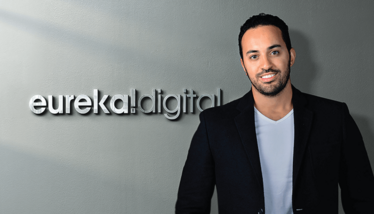Countering the Counterfactuals
Disinformation, misinformation... we all know it's out there, but how can pharma fight it?
Ahmed Samy Mokhtar | | Opinion

By Ahmed Samy Mokhtar, Director of Business Development, eureka!digital
A couple of months ago, I received a video on WhatsApp, bundled with the words “forwarded many times.” The video’s title was “Pfizer CEO refuses to get COVID vaccine.” In the video, an anchor asks Pfizer CEO Albert Bourla if he took the vaccine, and Bourla answers that he did not.
A quick search on Google brought me to coverage from the Associated Press that cleared up the matter; Bourla has already received both doses!
As for the video, it was an interview dating back to December 2020 – when there was a limited supply of the vaccine, and when jabs were restricted to high-risk groups. The video stripped the context; Bourla had stated that, as a low-risk patient, he was still in the queue for the vaccine. And that’s a good point, not a “negative” one.
How can disinformation like this be combated? First, there should have been an official clarification across all platforms. But that didn’t take place; instead, Pfizer responded by email via the Associated Press. We can give Pfizer some credit, though: Bourla did use his own Twitter account to state the truth.
Some pharma companies have judged that the cons of engagement with the public outweigh the pros. I take a different view. Imagine there’s a rumor afield concerning a medicine or a vaccine and that I’m an ordinary person seeking advice and clarification from the pharmaceutical company. Their social media channel – or even an @ on Twitter – may very well be my first port of call. If you’re not on the playground, you lose the battle against whoever is already there – “naughty kids” who may ruin your reputation and disseminate more rumors.
Social media has disrupted traditional means of communication: TV, radio, print, and even websites. In social media, you receive feedback that can serve as key performance indicators, and queries you can respond positively to. But on the other hand, you might find yourself having to deal with challenges from the rumor mill and bad actors in the playground. And that’s why pharma companies should be ready for all eventualities, with plans in place for potential crises.
I’ll leave you with some handy DOs (and no DON’Ts!), based on my own experience:
DO: Have a strict reporting policy regarding patients’ and healthcare practitioner feedback, including product technical complaints and pharmacovigilance.
DO: Analyze well before planning. Understand the online users’ behavior, their favorite sources of information, the keywords they usually search, and which key insights might help in communication.
DO: Prepare a robust plan that includes...
- The platforms you will focus on.
- A content plan stating what to say and when, considering relevant main seasons, events, and special days or months, such as World Diabetes Day and Breast Cancer Day.
- Defining metrics and key performance indicators that will be used to measure the overall performance.
- A community management model that lists how to reply to people’s comments and private messages. For instance, if someone asks a question, a company should react following a template of pre-agreed answers. If the question is not covered by the template, then protocol directs the query to a defined accountable person.
- A crisis management plan with solid steps including reassurance, investigations, and taking actions.
DO: Have a clear objective before going to social media. Some pharma companies go to social media only for the sake of spending an allocated budget – and that is not an objective!
Ahmed Samy Mokhtar, Director of Business Development, eureka!digital



















